For a brief moment, it was almost as if they were people. They were scientists working on new treatments for HIV/AIDS or whose research had helped contain the spread of that Ebola outbreak a few years ago. They were engineers who led NASA deployments of rovers to Mars. They were elderly people banned from returning home after travelling for a family funeral – and others banned from attending the funerals of their American relatives. They were translators helping Western journalists or the US military. They were dog-owners whose pets were suddenly stranded. They were high-school students who wanted only to attend a space camp. They were vets and doctors and musicians. They were Olympic gold medallists and Oscar-nominated directors and actors.
That's what struck me immediately as news of the Trump administration's immigration ban screamed across the world. I'd never really seen Muslims described in that way, and it was frightening just how much it stood out. It was like some lost tribe had been discovered: the previously invisible inhabitants of the badlands that occupy our fears far more than they do thoughts.
More World News Videos
Immigrants with Affected Family Fearful of Ban
President Donald Trump's signing of an executive action to bring sweeping changes to the nation's refugee policies is causing fear and alarm for immigrants in the U.S. whose family members will be affected.
And frankly, that's why we're here. Something as crude and bludgeoning as this only happens because of the years that precede it. Say what you will about Donald Trump, he is not suddenly afflicted with insanity. He is not the generator of some new malevolent thought. He's building on foundations he hasn't laid. He can only do this – after taking it to a never-ending election campaign – because the cultural environment exists to receive it as some version of common sense. He can treat Muslims in a grossly undifferentiated way because that's largely the way public culture has trained us to see them.
That doesn't mean Muslims must always be terrorists – though that is only a semitone from Trump's rhetoric. It's that they must always be defined by their relationship to terrorism. If we're in a tolerant mood, we'll make a series of disclaimers about the "moderate majority" who reject such atrocities. And sure, that's true.
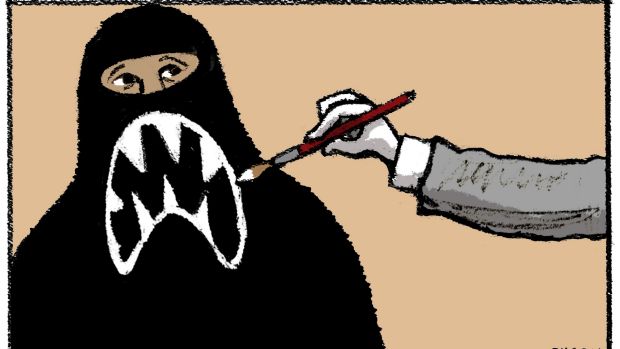
But the trouble is that's not the story of a people. It's not anything really, other than a statement of what someone isn't. In this formulation you can be "not a terrorist", but you can't be something. Not a contributor, not an asset, not even a battler. You can't be complex, nuanced, evolving. You can either confirm or "challenge" a predetermined stereotype, but that's just another way of saying you must prove your innocence – over, and over, and over ...
So it's hardly surprising that – even as the touching stories of those caught up in Trump's dark fantasy were everywhere – the fact of a terrorist attack on a mosque in Quebec City this week barely touched any emotional register. Nothing about the lives of the six Muslims killed, or even of the Trump-loving white guy who killed them, seems to have been worthy of quite the same treatment. Indeed we were spared even the ritual emoting that accompanies these things.
Malcolm Turnbull offered his condolences to the Canadian Prime Minister, sent a tweet and noted it at a press conference, but you probably missed that because no one seemed particularly interested to hear it.
Trump did make his condolences public, but only as his press secretary said the event justified the President's "proactive rather than reactive" steps. How exactly these steps address this Quebecois tragedy is unclear. Perhaps Trump is banning millions of Muslims from coming to America because he's worried his more violent supporters will kill them. That's nice, I suppose.

It would be wrong to call this a double standard. It's not that we feel an affinity with Trump's stranded travellers that we don't with those killed in Quebec. The truth is we feel little affinity with either. It's just that the former are fodder for a story we're more interested in telling right now. The best way to tell that story has been to discover the humanity of those affected, but the story is really about Trump and his cyclonic presidency. That's the cause of the emotional investment. Were they victims of Obama, or even a right-wing lone-wolf terrorist, they'd be immediately less interesting, less human. Perhaps if that weren't so true, the very idea of a Trump's blanket ban would have been less saleable.
That's probably why I've felt a nagging sense of irony this week as the world swelled in protest. Yes, I take some heart from the parade of Hollywood celebrities, for instance, dedicating their awards-night speeches to standing against what Trump has unleashed. And I take some heart from the thought that finally Muslim stories are being told that actually correspond to their lives, even if in awful circumstances. But not too much. Not when few cultural institutions have been as effective at building the most one-dimensional Muslim stereotypes as Hollywood. And not when a media now saturated with disdainful, heartfelt coverage of Trump's chaos, has not even the slightest hunch that it has done so much of the dehumanising work for him.

Waleed Aly is a Fairfax Media columnist and a host on The Project.


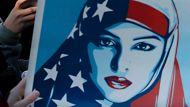
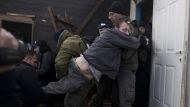


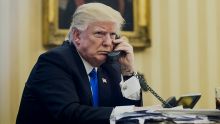



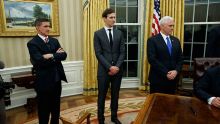





75 comments
New User? Sign up